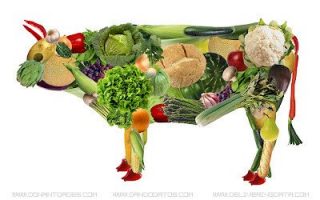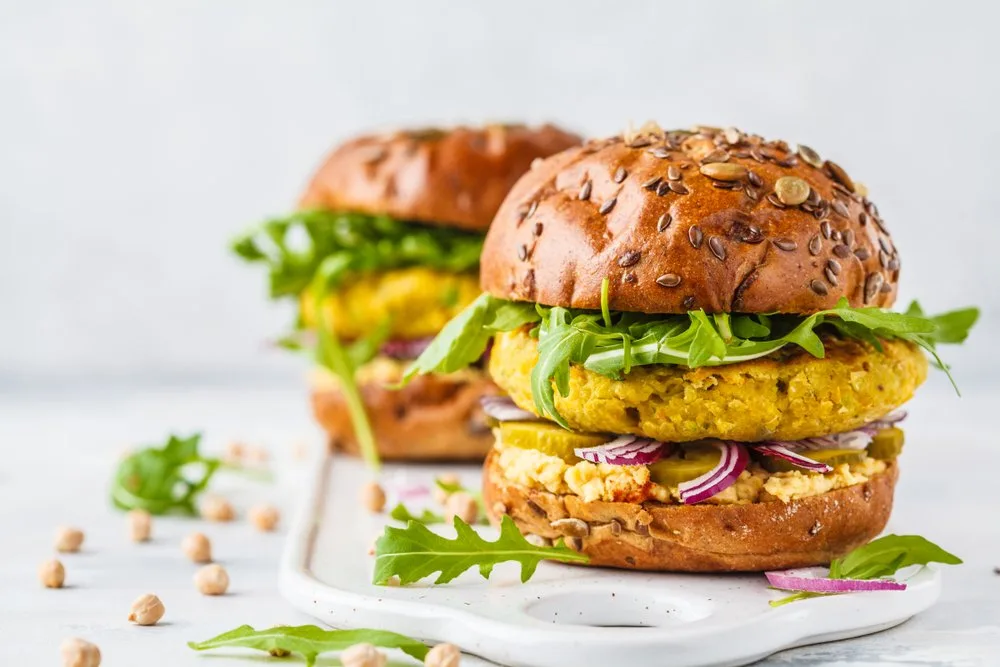The good news is there ‘s an increasing number of meat substitutes out there. Unfortunately, not all of them are healthy. Camille Skoda, dietitian at a leading American hospital, Cleveland Clinic, explains how to choose them.
Meat alternatives offer several advantages compared to meat. Vegan versions of burgers, for example, are free of cholesterol and usually contain fewer calories and less fat than similar burgers made with meat. There are many more meat substitutes available with the growing demand for plant based diets. However, just because a product is vegetarian or vegan, does not necessarily mean it is healthy.
Faux Meat Substitutes May Not Be Healthy
Dietitian Camille Skoda, RDN, LD. says: “There’s a new generation of faux meat products that are highly processed to mimic the look, flavor and texture of the real thing. For anyone who’s looking to pare back their meat consumption, these products can help ease the transition, but some are far healthier than others.”
She suggests looking for plant-based proteins. While good-quality meat can provide your body with a plethora of different vitamins, minerals and nutrients, plant-based proteins have their own unique set of benefits, Skoda says.
Choose Carefully
“Having one meatless meal per day, or one meatless day a week, can help you diversify your diet, add fiber, and include other sources of protein,” she says.
Whole-food sources of plant protein, such as beans, lentils, nuts, seeds and whole soy, provide fiber and prebiotics to help your gut stay healthy. They also contain sustainable carbohydrates and healthy fats that can help balance blood sugar, Skoda adds.
Studies have also linked plant-based diets with lower risk of cardiovascular disease and other health benefits.

A Lot Of Meat Substitutes Are Highly Processed
Skoda advises consumers to study the ingredients panel carefully. While many packaged meat substitutes are made with healthy, whole-food plant proteins and ingredients, not all of them are.
“Some of these products have added preservatives, sugars, inflammatory oils or other ingredients that we don’t want,” Skoda says.
What to look out for
She recommends considering your personal dietary needs and looking at the nutrition panel to determine the following:
- What is the protein source? “Some meat substitutes are made with pea protein or beans, which is great,” Skoda says. “Others are made with soy protein isolate (a processed form of soy) or wheat gluten. Those are the ones you want to avoid.”
- Does it contain simple ingredients? Some newer faux meat products contain hard-to-pronounce ingredients like methylcellulose (a thickener) and soy leghemoglobin (a genetically engineered protein). For the healthiest options, look for ingredient labels that contain mostly recognizable whole foods.
- How much protein does it have? Ideally, you’ll want to eat about 20 grams of protein per meal, Skoda recommends. “If you plan to use this product as a protein substitute, look for one that will provide you with at least 10 to 15 grams of protein, assuming that some other foods you’re pairing it with will also help you get to that 20 grams,” she says.
- What is the sodium and sugar content? While meat substitutes are usually free of cholesterol, some are higher in sodium than meat and may contain added sugars.
Stick to the classics
Another option, she suggests, is to stick to the classics, such as tofu. Packaged plant-based products that imitate beef, chicken and pork may be a convenient 1:1 substitute at a barbecue, but there are plenty of other plant proteins that can be easily incorporated into a person’s everyday diet.
Her suggestions are to swap out meat in a recipe for:
- Tofu, which is made from the whole soybean (rather than an extract) and is considered a complete protein. Skoda recommends choosing one that is non-GMO or organic and tossing it into a stir-fry, or crisping it in the oven.

- Tempeh, which is a good option for someone who does not like the mushy texture of tofu. It is also made from whole soybeans but has the added benefit of being fermented, which may help with digestion and absorption of nutrients. It is also generally higher in protein than tofu and provides ample amounts of calcium, iron and manganese.
- Lentils and beans, which are a good source of fiber and nutrients. Skoda advises tossing them on top of a salad, using them in soups and stir-fries, or making a bean-based veggie burger at home. “However, if you’re following a lower-carb eating plan, know that beans also contain carbohydrates,” Skoda adds.
The Bottom Line
Nutritionists and climate experts alike are warning against the consequences of the current high levels of meat consumption in much of the world. While increasing numbers of consumers are viewing the consumption of meat in a negative light. Vegan products offer many health benefits and are significantly more sustainable than meat. However, not all meat substitutes are healthy so make sure you know what is in the products you are buying.
About Camille Skoda
 Camille Skoda, RDN LD is a dietitian in Cleveland, OH. She currently practices at Cleveland Clinic Foundation.
Camille Skoda, RDN LD is a dietitian in Cleveland, OH. She currently practices at Cleveland Clinic Foundation.
About The Cleveland Clinic
Cleveland Clinic is a non-profit multi-specialty academic medical center that integrates clinical and hospital care with research and education. Located in Cleveland, Ohio, it was founded in 1921 by four renowned physicians with a vision of providing outstanding patient care based upon the principles of cooperation, compassion and innovation. Cleveland Clinic has pioneered many medical breakthroughs, including coronary artery bypass surgery and the first face transplant in the United States. U.S. News & World Report consistently names Cleveland Clinic as one of the nation’s best hospitals in its annual “America’s Best Hospitals” survey.
Read more
This is what happens when you stop eating red meat. Click here.




![women [longevity live]](https://longevitylive.com/wp-content/uploads/2020/01/photo-of-women-walking-down-the-street-1116984-100x100.jpg)










